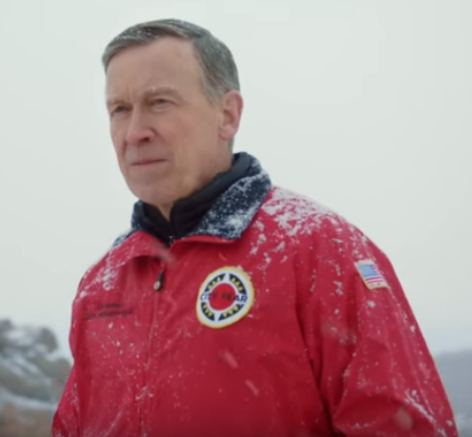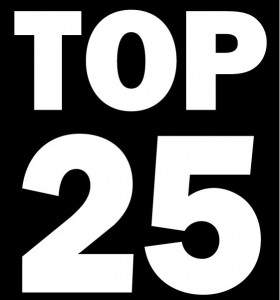Wesleyan Grad, Former Colorado Governor John Hickenlooper to Seek Presidency
/John Hickenlooper, a former two-term Governor of Colorado, Mayor of Denver and 1974 graduate of Wesleyan University in Middletown, is the latest Democrat to announce he will be seeking the party’s presidential nomination in the 2020 election cycle.
Hickenlooper, 67, is expected to point to his eight years governing Colorado, a modern-day political swing state with an electorate nearly evenly divided among registered Democrats, Republicans and unaffiliated voters, the Denver Post reported this week.
In addition to leading the state during an explosive economic expansion following the Great Recession, Hickenlooper nudged the state to the left, the Post reported. By the time his second term ended in January, he had expanded the state’s Medicaid program, signed comprehensive gun-control legislation and helped establish civil unions for same-sex couples prior to the U.S. Supreme Court legalizing marriage equality.
“I’m running for president because we’re facing a crisis that threatens everything we stand for,” Hickenlooper says in a taped announcement, promising to “repair the damage done to our country and be stronger than ever.” He will kick-off his campaign at a rally Thursday in Denver.
Hickenlooper graduated from Wesleyan University with a bachelor’s degree in English and a master’s degree in geology. He began his career as a geologist and later opened a series of restaurants and brewpubs across the country, including the Wynkoop Brewing Co. in downtown Denver, which helped spark the revitalization of the city’s now-thriving Lower Downtown (“LoDo”) district. He served as the mayor of Denver from 2003 to 2011.
Hickenlooper delivered the commencement address at Wesleyan in 2010, where he said “Frankness impels me to say that my Wesleyan undergraduate career was notable, which is not to say distinguished. I came to Wesleyan as a slightly dyslexic extrovert with attention deficit disorders. And don’t you think that’s a particularly cruel irony – that the slowest readers could also have the short attention spans?”
On a more serious note, he explained that “in spite of the fact that my degrees are in English and geology – what I learned at Wesleyan was how to be an entrepreneur. The essence of entrepreneurship is not just the economic bottom-line so much as it is an exploration of innovation and creativity.
It’s the creative spark that has always interested me most, because there is such joy and satisfaction in the process of creating something that works, that fills a need, building something where nothing existed before, adding value to people’s lives so that their creative energies can also flourish.”
Reflecting on his time as Mayor, he said “I like to refer to myself, because the word ‘politician’ is still somewhat tainted despite our efforts, as an entrepreneur on loan to Public Service.”
Hickenlooper described a start-up as “the single best learning process in American enterprise. When you build something from scratch, you acquire a depth of understanding that no ‘professional,’ no management expert can match. There are few better ways to learn about yourself, your strengths and your weaknesses, than in beginning and building something, an enterprise. It is a wonderful mirror.”
“Entrepreneurship,’ he added, “is all about innovation, re-invention, adaptation and perseverance.”
A past chair of the National Governor’s Association, he was guest on the weekly podcast hosted by the leaders of Middletown-based Community Health Center a year ago, discussing how expanded coverage under the Affordable Care Act has improved access to health care in his state, how embedding behavioral health in primary care is improving outcomes, lessons learned from the state’s marijuana legalization, and how the opioid crisis was being combated in Colorado.
His Wesleyan commencement address at the start of this decade included this description of his years as Mayor: “We challenged the status quo that government can’t work. We were transparent and accountable. We sought talent, without regard to politics, whether someone was Republican or Democrat. We weren’t bi-partisan, we were non-partisan. Every good restaurateur learns early that there’s no margin, there’s no profit in having enemies. You need everyone. We were always about solving problems, and you can’t solve problems with only half the people.”
https://youtu.be/QwIk0hUmzk8

































